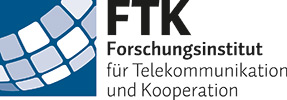Rubydemenz

Supporting home care for people with dementia through personalized human-robot interaction
In this BMBF research project, the effectiveness and optimization of a personalized human-robot interaction (RUBY) is being investigated. As a contribution to the promotion of "good care", it is intended to provide support, stabilization, and relief for caring relatives with home care of people with dementia.
As an overall intervention, RUBY comprises a robotic system and psycho-social support for the users by specially trained companions.
The project aims at optimizing a personalized human-robot interaction and tests its effectiveness in terms of a temporally flexible, situation-adapted, and complementary support in the home care of people with dementia. It comprises a robotic system linked to psychosocial support for the users. In this way, individualized functions can trigger activities that strengthen the self-efficacy of those affected and promote communication and participation, e.g. through social contacts. The targeted individual accompaniment also promotes communication between people with dementia and caring relatives.
The technical system has the external shape of a doll. It can therefore be integrated into everyday (care) life in a low-threshold and playful way and offers special communication and activation incentives without people with dementia having to learn how to operate a tablet, for example. Older people also prefer "discreet, small robots with human- or pet-like behavior to large humanoid robots", so RUBY picks up on these preferences and combines them with an appealing feeling created by soft materials and fabrics, thus creating a sense of security and closeness.
Innovations and perspectives
The novel structuring, activation, feedback, and communication system is to be used in home care situations to prolong the stay in one's own home and thus ensure the quality of life of those affected even in old age.
Consortium
The project is being carried out as a joint project by nine partners. In addition to the Research Institute for Telecommunications and Cooperation, the partners are Anasoft Technology AG, DRK-Kreisverband Bochum e. V., Matthies Spielprodukte GmbH & Co KG, Institut für Gerontologie an der TU Dortmund in Trägerschaft der Forschungsgesellschaft für Gerontologie e. V. (Institute for Gerontology at the Technical University of Dortmund under the auspices of the Research Society for Gerontology), Hochschule Niederösterreich (FfG), Niederrhein University of Applied Sciences, Rhine-Waal University of Applied Sciences, Geragogik Research Institute, Technical University of Berlin.
